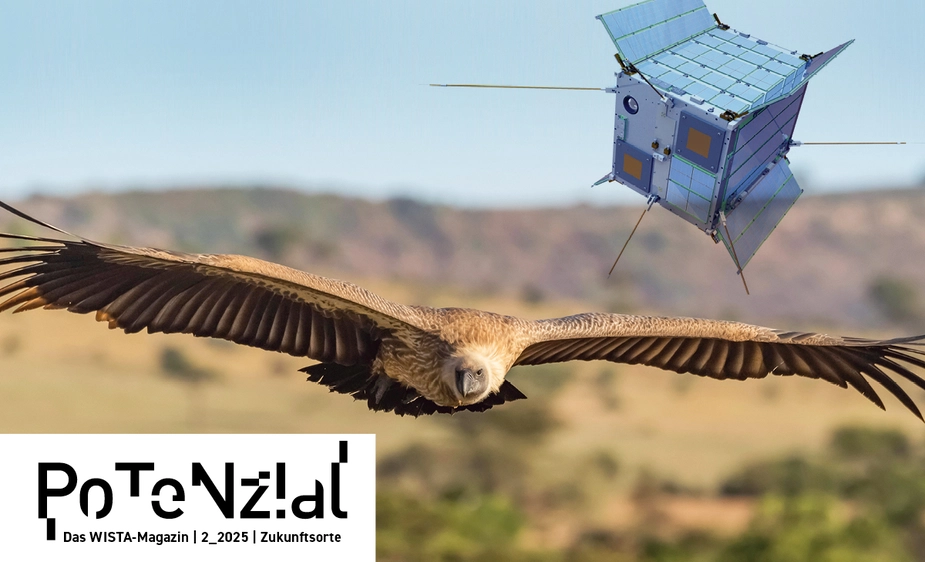Scouts in the sky: how vultures and satellites protect Africa’s wildlife
Nanosatellites from the Charlottenburg company Rapid Cubes help in the fight against poaching
Elephants and rhinos often steal the spotlight in efforts to protect Africa’s wildlife. A groundbreaking project called GAIA is now bringing in unexpected helpers: vultures, nanosatellites, and the expertise of the Charlottenburg-based company Rapid Cubes. Together, they form a early warning system, using high-tech against poaching.
Vultures don’t have the best reputation. They are seen as scavengers—unsightly cleaners of the savannah. But their sharp eyes and unerring instincts make them the perfect scouts. Wherever they are seen circling and gathering, it is likely that something has happened—and that’s exactly what makes them so valuable to the GAIA project.
Equipped with lightweight GPS transmitters, vultures provide valuable data that is analysed in real time. When a sudden gathering of birds appears in an unexpected location, it could indicate a dead animal or an instance of poaching. These natural scouts make it possible for the authorities to detect suspicious activity far more quickly than ground patrols. The time gained can mean the difference between saving or losing an animal. To receive and analyse these signals in Africa’s remote regions, a robust communications infrastructure is essential. This is where nanosatellites come into play. These tiny satellites in low Earth orbit can receive GPS data from the vultures and transmit them directly to rangers on the ground.
Walter Frese is the driving force behind Rapid Cubes, a start-up founded in 2021 and based at the Charlottenburg Innovation Centre (CHIC). The company specialises in the development of nanosatellites and satellite systems.
Weighing between one and twenty kilograms, these compact but powerful satellites enable cost-effective and flexible Earth observation, proving essential for navigation and communications both in orbit and on the ground. After successfully launching several payloads on board a ten-kilogram nanosatellite with Technische Universität Berlin last year, Rapid Cubes plans to send up more of its own “cubes” in 2025 and 2026. The company scored the “ticket to space” through a competition hosted by the German Aerospace Centre (DLR).
“I wanted to be a pilot growing up,” says Frese. “I loved the speed of it. I didn’t care much for space and its vast, air-less expanse.” Today things are different. Fascinated by the technology, he chose to study aerospace engineering.
GAIA stands for “Guardian of the Wild using Artificial Intelligence Applications and Satellite-based IoT Networks”. The name neatly encapsulates the project’s technical challenges. Data transmission must function even in remote regions, the system must be energy-efficient, while the receivers on the ground must not be too complex or expensive. State-of-the-art IoT technology (Internet of Things) makes it possible to send small data bundles across long distances. One particular challenge is the low Earth orbit of the satellites, which means they can only “communicate” with the vultures in short time windows. Therefore, the systems must be smartly synchronised to ensure no critical information is missed.
The GAIA project is already showing promising results. In pilot regions, poaching incidents have been detected more quickly, enabling rangers to respond to suspicious locations faster. The combination of biological intelligence (the vultures) and cutting-edge satellite technology has the potential to create serious problems for the poaching industry. Plus, vultures and nanosatellites may finally be recognised for what they truly are: lifesavers from the sky.
Rico Bigelmann for POTENZIAL
